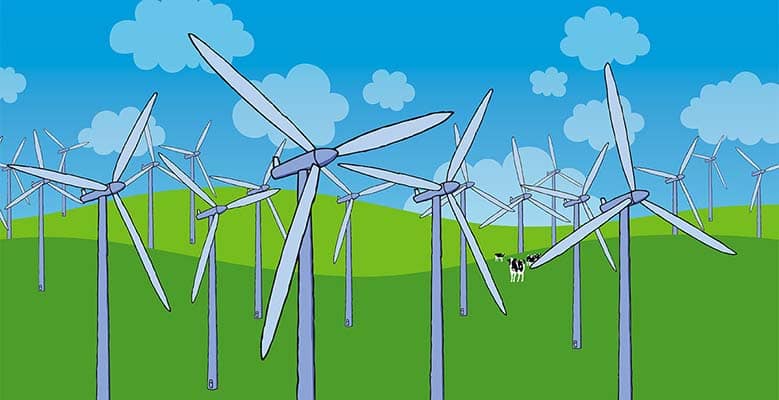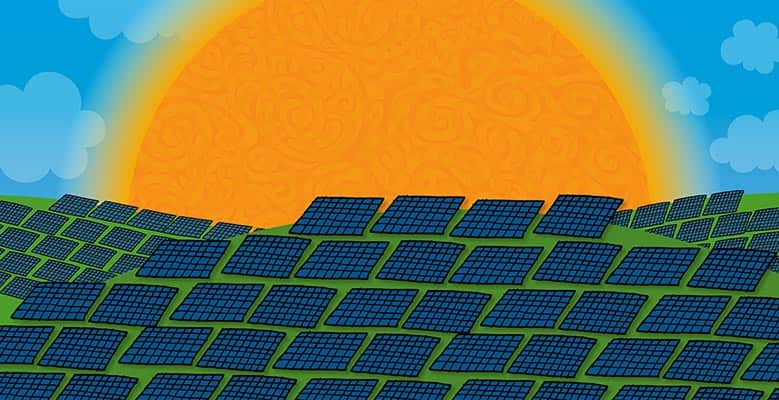Goodbye, Fossil Fuels:
June 14, 2016

There’s no doubt about it: the fossil-fuel era is coming to an end. Everyone who prefers their polar ice caps, like their ice cream, cold, has reason to feel hopeful.
Some real progress is being made toward a clean-energy future since the close of COP21 in Paris. But perhaps more exciting is what’s happening in the global marketplace even apart from all that work. There are signs that we might eventually be able to break our nasty and climate-scorching habit of burning all the carbon all the time.
Clean Energy on the Rise
A recent study issued by the International Renewable Energy Agency (IRENA) reports that renewable-energy employment rose to more than 8 million people in 2015, an increase of 5% over 2014. (These numbers did not include hydroelectric employment, for which reliable data is scarce. IRENA estimates that hydro may employ an additional 1.3 million people.)
In the US, for example, 769,000 people are employed by the renewables sector, compared to 187,000 in oil and gas and 68,000 in coal mining. In fact, for the first time ever, there are more people working in the solar industry alone than in oil and gas. Overall, jobs in solar and wind climbed 20% while oil and gas jobs fell by 18%.
A Global Trend
Much the same story can be told across the world. Despite the absence of a carbon tax, renewable energy employment continues to grow and prices continue to fall.
China installed 65 gigawatts of new renewable capacity last year, the most in the world. China boasts 3.5 million renewable-energy employees—35% more than in oil and gas. Asia, on the whole, accounts for 60% of the world’s renewable-energy employees, up from around 50% in 2013. Brazil ranks second to China, employing 918,000 people. And while this isn’t the story across the globe, it’s a trend that we’re happy to see is catching on in many countries.

Oil and Gas on the Decline
According to Bloomberg News, a 58% drop in oil prices since June 2014 can be blamed for most of the job reductions in the oil and gas industries. Drilling operations across the US, Canada, and Brazil have become unprofitable. Shell Oil even said so themselves when they backed out of their atrocious plan to drill in the Arctic last September. (Although we’d like to think it was Greenpeace’s giant polar bear that changed their minds.)
The timing, frankly, couldn’t be better. A 2015 study in the journal Nature warned that we need to leave 80% of the world’s known remaining fossil fuels in the ground to avoid the most catastrophic effects of climate change. It’s not that doing this will keep climate change from happening: sorry, that glacier has already retreated. But keeping it in the ground will help us avoid losing major cities under an additional 200 feet of seawater, or seeing all the ice in Antarctica melt. Things like that.
So it’s not really a tough call, right?
Act Now
It’s gratifying to see the world coming together to take action on climate change, and even more so to find that the marketplace itself seems to be embracing a clean-energy future.
There is a lot that we can do every day in our own communities to care for our planet. And it’s also important to learn about how we can encourage local officials to jumpstart the clean-energy economy state by state.
It’s a big world, and climate change is a big problem, but all of us working together can make a big difference.
Recent Articles
Join The Climate Movement
-
With a landmark climate action agreement in place including commitments from 196 countries to fight climate change, now is the time to keep the pressure on and ensure swift action. This climate agreement wouldn’t have happened without millions of people around the world taking action. And we won’t be able to meet the ambitious goals of the Paris Agreement without millions and millions more people taking action in support of a rapid transition to clean energy. Paris was just the beginning, not the end. Let’s get to work towards a greener, cleaner future. Add your voice to the millions demanding action and sign the petition today!


